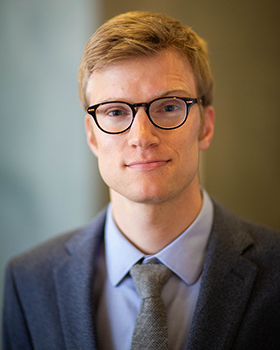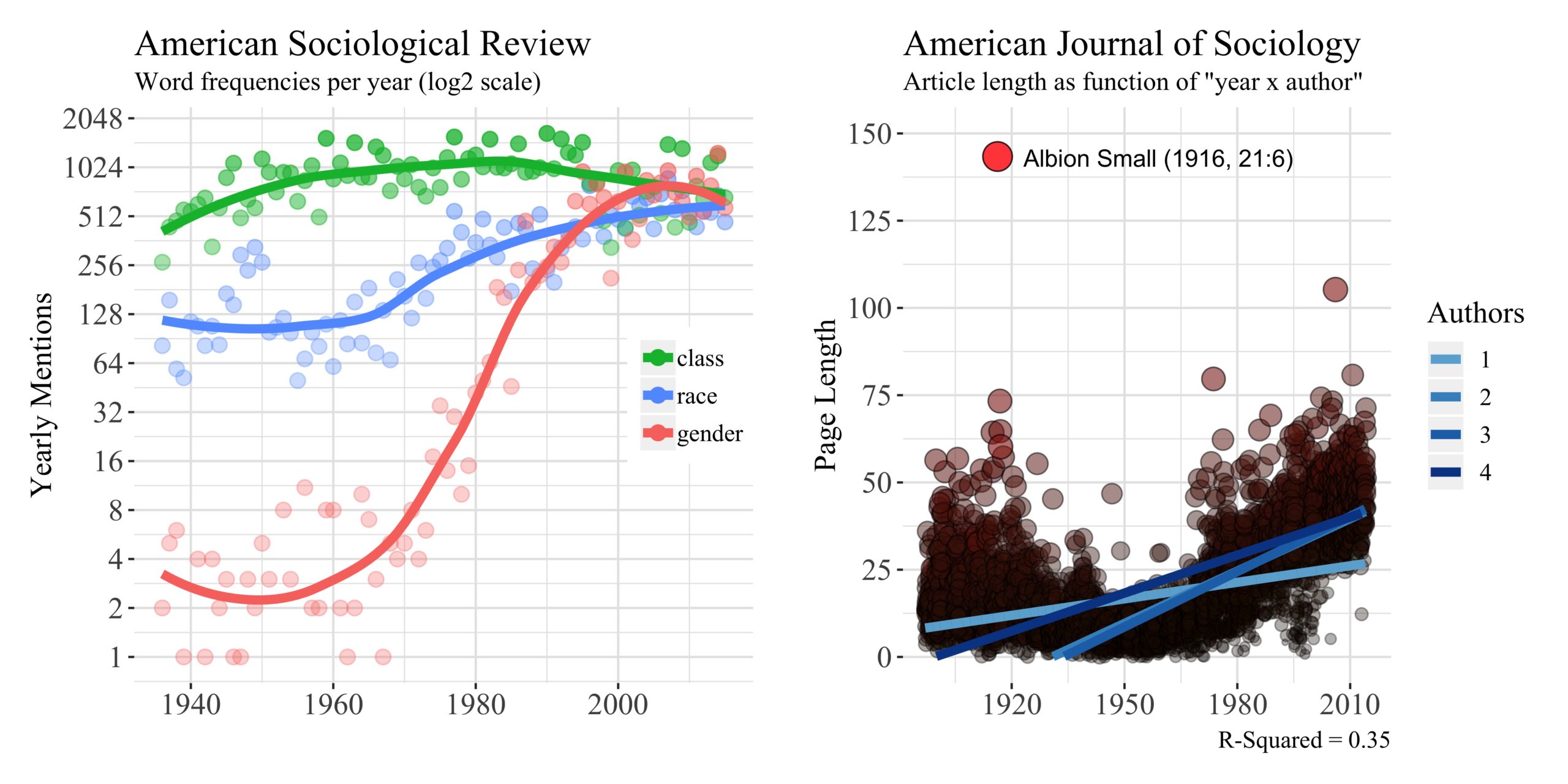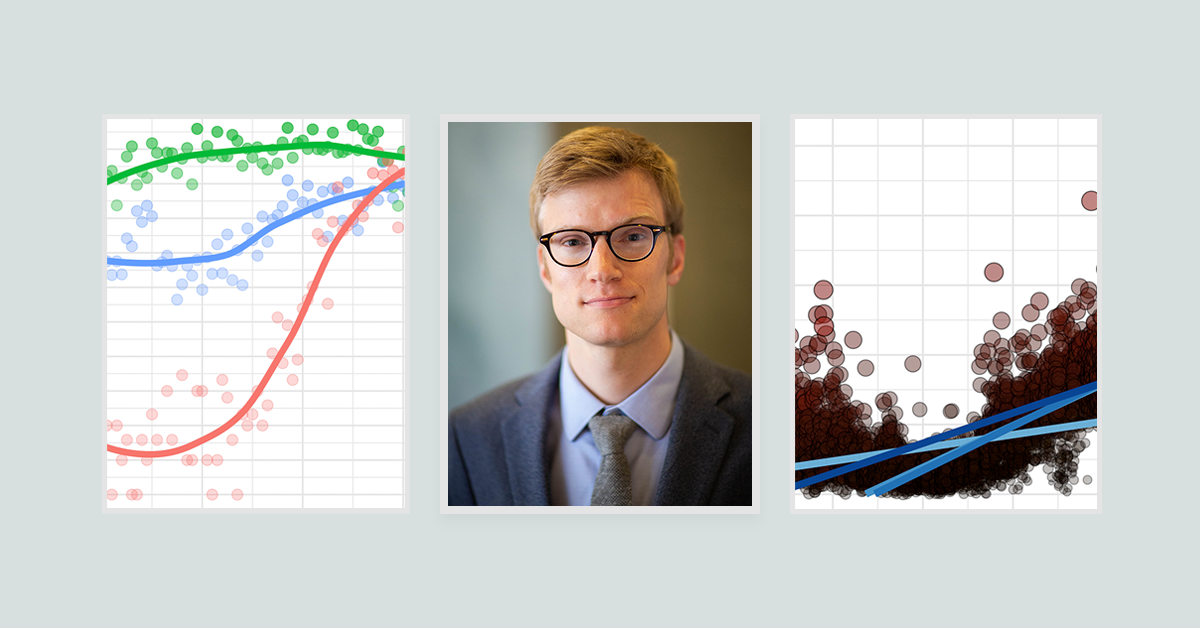This reflection post is part of a series on current and former members of the Emory Center for Digital Scholarship (ECDS) staff. John Bernau is a former graduate student staff member.
by John A. Bernau, PhD

I fell in love with sociology as a philosophy major. While drawn to big, “meaning-of-life” questions, I nonetheless wanted the data-driven search for answers that the social sciences promised. When “digital scholarship” entered academic parlance in the early 2000s, it brought a similar hope to the humanities. Specifically with the rise of text analysis, bibliometrics, and quantitative history, an interest in data and digital tools began to reach all corners of the academy. As more and more of our lives began to take place online, however—a transition only quickened by the current COVID-19 pandemic—to what extent does digital scholarship simply become… scholarship?
During my six years as a graduate student at Emory University, I spent four of them at ECDS. I began my tenure through the Digital Scholarship Internship Program (DSIP) where I learned a suite of digital tools I continue to use on a daily basis, from multimedia software like iMovie, Audacity, and Photoshop, to web development tools like Hugo, Netlify, and WordPress. This training took place alongside members of the Emory community—faculty, graduate students, and undergraduates—as ECDS served (and continues to serve) as a campus-hub for digital projects. I also honed my skills in data visualization and statistics working alongside Rob O’Reilly (Data Librarian) and Sara Palmer (Digital Text Specialist), teaching over twenty hours of interactive workshops in partnership with Emory University’s Department of Quantitative Theory and Methods (QTM). When I was awarded the 2018-2019 Digital Humanities Fellowship, I worked as an Associate Editor of Atlanta Studies—a digital publication for scholarship in and about Atlanta—while continuing to teach interactive workshops on text analysis, visualization, and web-scraping.
Over the years I’ve begun to see digital scholarship as a three-part agenda that encompasses tools and techniques for academic (1) organization, (2) research, and (3) outreach. First, digital tools have undoubtedly improved scholarly organization and communication. From email and cloud storage to Zotero and Zoom, some tools have simply become indispensable in today’s day-to-day work. Second, a different set of digital techniques have revolutionized academic research itself. The proliferation of digitized text has catalyzed new work in the history of words (see Figure 1), topics, and even meaning itself. Similarly, the democratization of statistical computing through software like R and RStudio has engendered new excitement about data and visualization. Furthermore, digital archives, audiovisual technology, and immersive VR technology are bringing contemporary research to life in multisensory, multidimensional ways. Together, these advances point towards a future where the blurring of methodological (and disciplinary) boundaries might bring us closer to consilience. Lastly, digital tools have changed the way scholarship is communicated and delivered. We have all heard of the promises and perils of social media, but other digital outreach like email newsletters, webinars, and online publications are similarly impacting the scope and reach of scholarly efforts.

Together, I think these three components explain and hopefully clarify some confusion around the term “digital scholarship.” At one level, it refers to a collection of procedural improvements in organization and outreach, but at another level it refers to a methodological focus on advancing research using the latest tools at our disposal.
I am currently a postdoctoral digital scholarship fellow at the Center for the Study of Law and Religion at Emory Law. Supervising a team of talented students, in the last year we have organized and edited an expansive video library, developed multimedia promotional materials, and most significantly, launched our own digital publication Canopy Forum: On the Interactions of Law and Religion. Since October 2019, we’ve published over 100 articles, attracting more than 25,000 unique pageviews from readers in 124 countries. While this impact is in part a testament to our 40-year history as a thought-leader in the field of law and religion, it is also impossible to imagine such progress without the tools and techniques afforded by digital advancements.
In sum, I think digital scholarship is a discipline aspiring to become a method. While it takes a small team of early adopters to advance a new way of operating, with enough success the tools and techniques of digital scholarship might one day come to be known as simply… scholarship.
